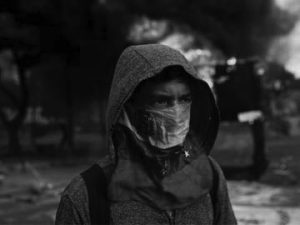International News
Ryan Hendrickson
Staff Writer

This past week Venezuelan President Nicolas Maduro publicly stated that the United States is trying to overthrow his country’s government. His claims come after a month of deadly protests which have rocked Venezuela’s political establishment to its core. Many international observers have condemned the heavy-handed tactics of the government, while many wonder what path the country will now take.
President Maduro, whose political party has ruled Venezuela since 1999, could lead efforts in reforming his country. However, Maduro will more likely continue to blame the US for all of his country’s problems, distracting the public from the pressing issues at hand.
Before Maduro became president in 2013, one man, Hugo Chavez, had ruled the country for 14 years. He owed his overwhelming popularity among the lower classes to his fiery persona and efforts to keep down the costs of goods and services. Other Venezuelans despised him because he continually extended the number of terms a president could remain in power. On top of this, while prices remained low for the poor, the country’s violent crime rate became one of the worst in the world, prisons became overcrowded, the power grid slowly began to fail and inflation reached an annual rate of fifty percent a year. Despite the fact that the currency was losing half of its value each year, Chavez maintained complete control of the country. When Chavez died in 2013, Maduro took the reigns. Although the country has a new leader, the numerous domestic issues remain.
Students began staging protests, demanding that the government finally address the rampant crime rate. Eventually, the demonstrations turned violent and many students were arrested. Once this happened, the opposition movement quickly spread throughout the country, including the capital Caracas where pro-government workers opened fire. After two people died in the streets, protests picked up even more momentum.
Now the country is divided. Many parts of society still support Maduro, most notably the lower classes who continue to stage counter protests and attack anti-government demonstrators. Despite the use of force, those demanding change continue to rally in the streets on an almost daily basis, undeterred and seemingly encouraged by the government’s heavy handedness. Now, the Secretary General of the United Nations has urged both sides to come to the negotiation table, and the US has condemned Maduro. However, for the time being it appears that President Maduro will continue to emulate his predecessor, Chavez. Instead of addressing the issues of the country and the demands of his people, Maduro simply blames the US and hopes for the best; although, unlike his predecessor, this tactic may no longer be enough to satisfy the people’s demands.
Leave a Reply